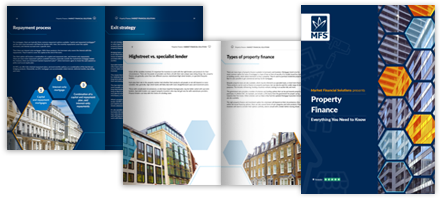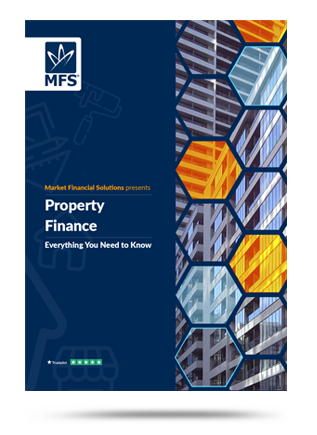Market Financial Solutions are a bridging loan and buy-to-let mortgage provider and are not legal, financial, investment or tax advisers. This document is for informational purposes only and does not, and should not be considered, to constitute legal, financial, investment or tax advice or be relied upon by any person to make a legal, financial, investment or tax decision. Therefore, Investors are encouraged to seek appropriate professional advice. The information in this content is correct at time of writing.

Distressed property investment opportunities come in many shapes and sizes. Borrowers and brokers alike probably have a picture in their mind of what a distressed property looks like.
The word distressed evokes an image of a rundown home. Perhaps the windows are smashed or boarded up. The house is dark, and looks like it hasn’t been lived in for years.
But this is but one kind of distressed property. They can also emerge from separations or divorces, relocations, or the probate system. In this blog, we’ll explore these areas, and how the resulting properties can fit into an investment strategy.
1. Dilapidated properties
Let’s start with the more obvious type of distressed property. On average, just over 6% of properties in each local authority are empty in the UK[1]. They are either completely vacant, or used as second homes that are unoccupied for most of the year and in some areas, as many as one in three homes are sitting empty.
The risk is that these properties can be effectively forgotten, or left to fester. Many councils across England are “increasingly concerned[2]” about the potential impact these properties can have on local communities.
Abandoned homes can attract pests, crime, and mounting rubbish. The latest government data shows there are over 700,000 empty homes across the UK, 264,884 of which are classed as long-term empty.
Fortunately, these properties can present opportunities for attentive investors. Dilapidated properties often turn up at auction, and they can quickly be turned around into much more valuable assets[3].
2. Financial distress
Distressed property opportunities can also come from instances where financial pressures take their toll. Fortunately, foreclosures are relatively rare. In Q2 2025, just 1,340 homeowner mortgaged properties were taken into possession[4]. This was 10% greater than the prior quarter, but the numbers remain significantly less than the long-term average.
Still, repossessed properties often turn up for sale in the market, usually at a discount[5]. Currently, the value of outstanding mortgage balances with arrears is around £20.9bn[6]. Property investors may want to keep an eye on economic changes that may lead to increased foreclosures.

3. Relocation
As homeowners move, potentially leaving a local community they’ve had a hand in shaping, their left behind assets can become distressed properties. In recent months, as economic challenges mounted, we’ve seen many English people relocate to Scotland, attracted by business opportunities, and a better sense of community[7].
Meanwhile, many wealthy people have fled the UK to move overseas in the face of rising costs, and tough legislation[8]. This has led to luxury properties being emptied in both the residential[9] and commercial[10] markets.
This, along with other pressures, have pushed prime property prices down, especially in central London[11]. As such, there could be opportunity here for property investors to add high end assets to their portfolios at a discount.
4. Separations and divorces
Distressed properties can also emerge from separated couples. When a separation or divorce happens, a home is often put on the market. The parties involved are usually keen to sell the property quickly, for obvious reasons.
Divorces in particular can be painful, considering how finances are often intertwined in a marriage. In Q1 2025, there were 28,890 divorce applications made across the UK. The pressure may be on to sell houses here, considering how the costly process is increasingly drawn out. During the same period, the mean average time from application to conditional order was 42 weeks, up 1 week from the same quarter of 2024[12].
For whatever reason (theorised to be local seasonal nature of employment and economic instability), the highest rates of divorce[13] are found in our seaside towns. In places such as Norwich and Blackpool, it may be easier to target more distressed property opportunities.
5. Death in families
Where a death occurs, families will often enter the probate system. Probate is the legal right to deal with someone’s property, money and possessions (their “estate”) when they die. It needs to be applied for, which is often done by a closest living relative where there isn’t a will in place[14].
Probate properties are those that emerge from this process. It’s estimated that 1 in 10 properties on the UK market is a probate sale.
These assets can be thought of as distressed properties largely due to the time lengths involved. It takes around 9 to 12 months to complete the process[15]. Also, probate can bring with it inheritance tax issues.
Inheritance tax is a tax levies on the estate of someone who’s died, and it usually needs to be paid before probate is issued[16]. This can come as a surprise to unsuspecting inheritors and other third parties. In fact, due to legislative tweaks, the number of families who fall into the scope of inheritance tax could triple by 2027[17].
Distressed properties are simply another element of an increasingly complicated real estate market. Should property investors come across them, or have their investment plans effected by them, we may be able to help with tailored bridging solutions.
The Complete Guide to
Property Finance
Everything you need to know
- Foundation & different finance types
- Useful tools
- Apply them in real life
- Market insights & more
[1] https://www.comparemymove.com/press-and-media/empty-homes-report
[2] https://www.bbc.co.uk/news/articles/c4g840ydlzvo
[3] https://www.telegraph.co.uk/money/property/buying-selling/dilapidated-cowshed-now-four-bedroom-home-with-1m/
[4] https://www.ukfinance.org.uk/data-and-research/data/arrears-and-possessions
[5] https://www.sdlauctions.co.uk/property-auctions/repossessed-property-auctions-uk/
[6] https://www.bankofengland.co.uk/statistics/mortgage-lenders-and-administrators/2025/2025-q2
[7] https://www.thetimes.com/uk/scotland/article/why-are-so-many-english-people-moving-to-scotland-fngkp0l2c
[8] https://moneyweek.com/personal-finance/tax/where-rich-relocate-to
[9] https://www.telegraph.co.uk/business/2025/10/16/lights-out-london-mansions-go-dark-wealthy-run-from-reeves/
[10] https://www.telegraph.co.uk/business/2025/10/15/mayfair-shops-left-empty-by-labours-war-on-wealth/
[11] https://www.landlordtoday.co.uk/features/2025/10/central-london-prices-down-20-so-is-it-a-good-investment-again/
[12] https://www.gov.uk/government/statistics/family-court-statistics-quarterly-january-to-march-2025/family-court-statistics-quarterly-january-to-march-2025
[13] https://todaysfamilylawyer.co.uk/highest-rates-of-divorce-in-seaside-towns-according-to-research/
[14] https://www.gov.uk/applying-for-probate#:~:text=you’ve%20applied-,What%20is%20probate,named%20in%20it%20can%20apply.
[15] https://www.unbiased.co.uk/discover/personal-finance/family/what-is-the-probate-process-and-how-long-does-it-take#how-long-does-the-probate-process-take
[16] https://www.moneyhelper.org.uk/en/family-and-care/death-and-bereavement/a-guide-to-inheritance-tax#:~:text=Taking%20out%20a%20life%20insurance,to%20pay%20when%20you%20die.
[17] https://www.telegraph.co.uk/money/tax/inheritance/families-in-line-for-inheritance-tax-grab-to-triple/






